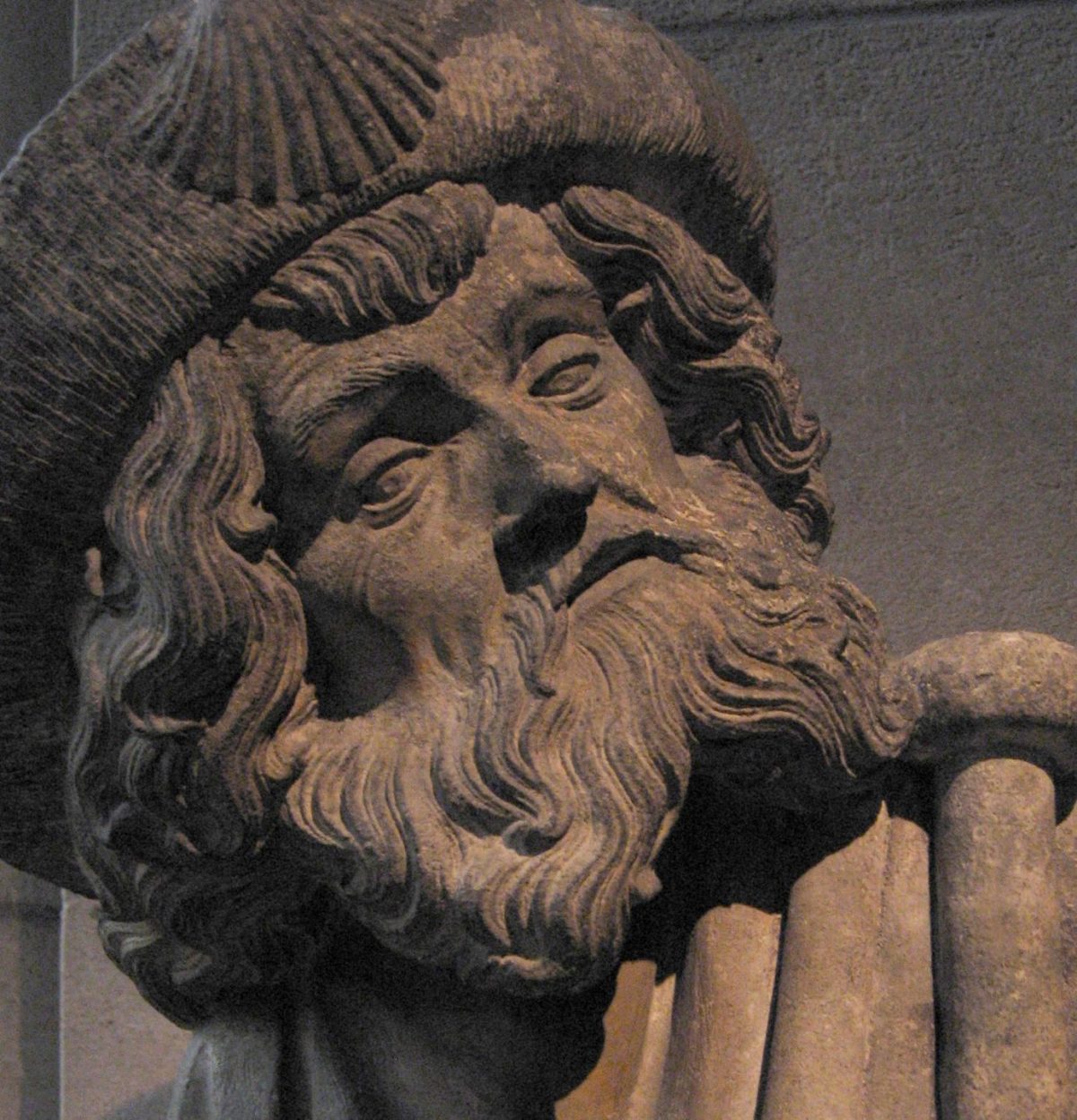By the Rev. William Whitla
Acts 11: 27 — 12: 3 / Ps 7:1 – 10 / Mt 20: 20 – 28

+ In the name of God the Creator, Jesus born a human among us, and the Holy Spirit fulfilling us all in life and peace. Amen.
St. James – here he is in Acts in the story of his execution at the order of King Herod, as well as in the Gospel the story of the mother of the brothers, James and John, asking about the place of her sons in the coming realm of God. Immediately a controversy erupts about who will be first in the kingdom and who will sit in the best seats at the Messianic banquet. Of course it turns into a question of what qualifies one to have any place at the table at all. It is always a question when you are a guest at a banquet, about where to sit. Is there a seating plan at this wedding, at this formal dinner, at this evening out at the restaurant – whatever. Where do you sit? How is the social hierarchy to be arranged? Who orders the seating, and why?
In ancient Palestine this was crucial because one’s seat indicated not only rank and prestige, but also power. Being seated in places of honour meant social recognition, and with that came honour (where honour was a hugely important social category – as it still is in Italy and Spain, and all Latin American countries). Honour conferred influence and power.
Jesus responds that the seating at the Great banquet is at the disposition of the Great Host. God will dispose the places of honour to those who are the least in the eyes of the world – those who are the poorest, the homeless, the hungriest, the ones out of work, the neglected and the sick, the servants and even those who are the slaves.
In the parallel version in John’s gospel, this controversy is part of Jesus’ teaching after the Last Supper, so it is already in the context of the Great Messianic Banquet. Here in Matthew, the Greek word for servant is diakonos: originally, one who runs errands, who serves as a waiter, one who ministers to others’ need, who cares for the poorest. Of course it is our word “Deacon” – and originally the deacons were the assistants, or table-servers, first for the bishops, and later for the priests and the whole people of God.
But Jesus goes on. Whoever would be first at this table, must be your slave, he said. No longer even a hired servant, but a bound slave (doulos) – the word refers to the chains that bound slaves, often by hand, and at night by feet too. So with Jesus, the disciples at the Great Feast are bound as slaves to the Master, tied to him as his followers, but also as students are bound to a teacher, religious followers committed to his moral authority, witnesses of his work as a healer, they were, all of them, bound as slaves, by ties they could not break to an inspired one who spoke the living words of God.
But now, in this astonishing moment, Matthew has Jesus say that to become first at the table, become a slave. And furthermore, just as he came not to be served (that word refers to deacons serving him), but to become a deacon, a server himself, and even more, to give his life as a ransom for many. The clue is in “ransom” (Gk. lutron: the price paid to free a slave). Jesus is taking on the role of servanthood, both deacon and slave, the one who will be waiting on table, being the servant of all, but, also, paying the price to free all from slavery. This is the message that St. James learned in this exchange.
This year, James’s feast day fell on this past Sunday, so there were great festivities at his shrine where his bones rest in Compostello in Spain. According to his wondrous legend, his bones were “miraculously transported across the Mediterranean in a stone coffin and came to rest at Santiago de Compostela in Spain” – For all the Saints). That is the goal of the great royal highway, the Camino Real— the pilgrimage road across Europe, used for well over a thousand years to honour Christ and St. James by undertaking the great journey and the reform of life, seeking, as Christ said, the true diaconate of service: called to serve, in the pilgrimage of our lives. And may it be so for each of us, as we receive this bread for our journey, now and forever.
Image of St. James the Greater:
https://www.growchristians.org/wp-content/uploads/2016/07/Saint_James_the_Greater_2-1-e1469457602168.jpg


